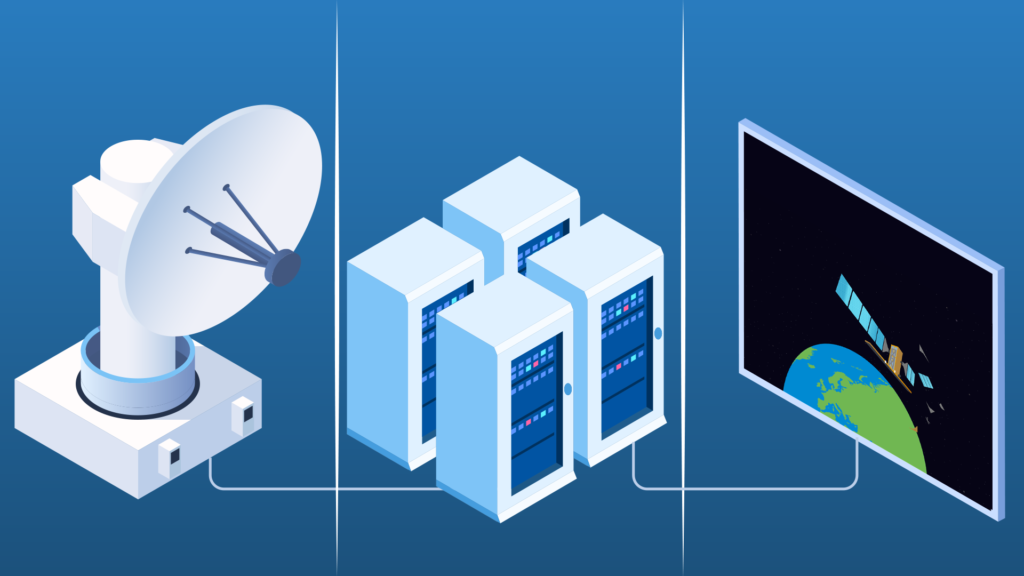On 30 November, the EU Space Surveillance and Tracking (EU SST) Partnership signed the last grant out of six covering the EU SST activities for the period 2023-2026, funded by the EU Space and Horizon Europe programmes. This concludes a year full of challenges and achievements for EU SST, including the start of operations of the new Partnership of 15 EU Member States and the successful transfer of the EU SST Front Desk to EUSPA, the EU Agency for the Space Programme.

Throughout 2023, the EU SST Partnership signed six grants funded by the European Union, which will allow to carry out the EU SST activities until 2026. Activities under these grants started on 1 July, although the signature of the grants was done at a later stage with retroactive effect in order to complete the work on the related procurement procedures.
The first four grants, funded by the Horizon Europe research and innovation programme, were signed on 1 August. These grants cover specific topics, including the development of new services (such as to support debris mitigation and remediation) and the evolution of the current ones, the improvement of the EU SST system performance (such as accuracy and cataloguing of objects) and autonomy, the assessment of a future space-based surveillance and tracking capability, and the enhancement of the EU SST sensor and processing functions.
On 11 September, the Partnership signed a grant funded by the EU Space Regulation, supporting the implementation of the EU SST activities as a sub-component of the EU Space Programme. This grant will contribute to the provision of the EU SST services by ensuring continuity in its delivery and by supporting continuous improvements and upgrades of assets. One last grant from the Horizon Europe programme, related to security, networking and data sharing, was signed on 30 November.
These grants are implemented simultaneously to address the objectives identified for EU SST in the EU Space Regulation and the Horizon Europe Work Programme 2021-2022, and are complemented with national contributions in operations and activities planned in the frame of national R&D programmes. The beneficiaries of the grants are the 15 Member States of the EU SST Partnership.
The signature of these grants, for a total amount of EUR 173 million, concludes a year for EU SST full of overcome challenges and important milestones. In 2023, the EU SST Partnership of 15 Member States started its activities, the Collision Avoidance service was opened to spacecraft operators worldwide, and the EU SST Front Desk was successfully transferred to EUSPA. This year, EU SST also celebrated the first anniversary of the European Union Industry and Start-ups Forum on Space Traffic Management (EISF), published its first call for tenders on commercial data procurement, took part in EUSPA’s User Consultation Platform for the first time, and its work was acknowledged with the T.S. Kelso Award.
Pascal Faucher, Chair of the EU SST Partnership, stated: “Through these grants, the EU SST Partnership, in close cooperation with EUSPA, is advancing space safety and sustainability, driving innovation and competitiveness of the European Union’s commercial SSA ecosystem, and reinforcing Europe’s strategic autonomy in the SSA domain. The milestones achieved in 2023 demonstrate our commitment to make space activities more sustainable.”
In 2024, EU SST will continue working to ensure the safety and sustainability of space operations and safeguard European economies, societies and citizens who increasingly rely on space-based services such as navigation or Earth observation. It will aim at fostering the European industry and start-ups ecosystem to increase the resilience of space assets and to a higher level of EU strategic autonomy, and to this end, EU SST plans to issue new calls for tenders, including on commercial and innovative sensors early next year. EU SST will also keep on opening its services to a wider community of users, and, as the backbone of the EU’s approach to Space Traffic Management (STM), it will continue improving its core capabilities and developing new technologies to face challenges raised by an increasingly congested space environment, relying as much as possible on the European SSA commercial ecosystem.
